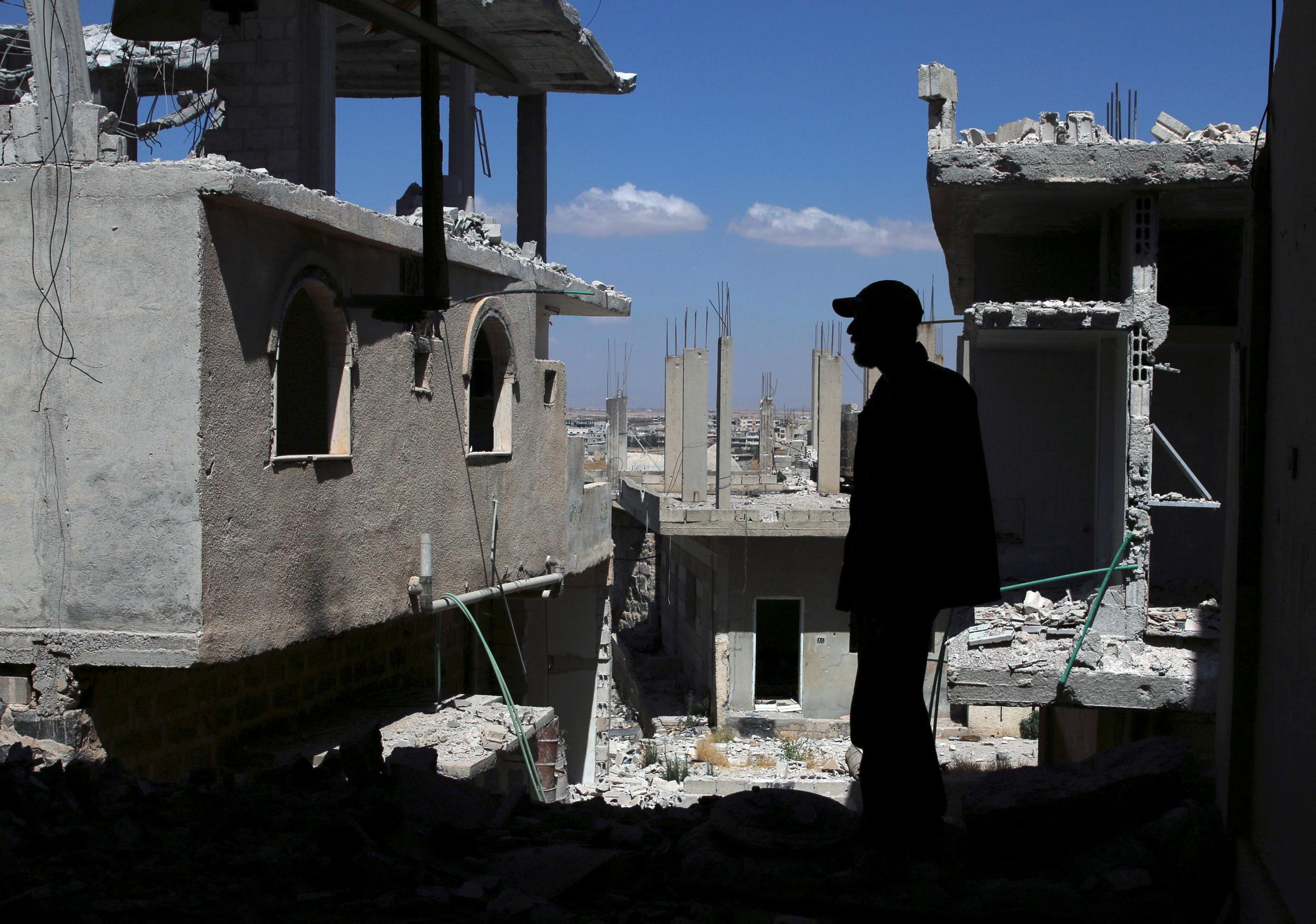Syrian army pauses for Astana peace talks after skirmishes with Israel on southern border
Rebel fighters accuse army of violating ceasefire called for next round of talks as US-backed militias make gains against Isis in Raqqa

Your support helps us to tell the story
From reproductive rights to climate change to Big Tech, The Independent is on the ground when the story is developing. Whether it's investigating the financials of Elon Musk's pro-Trump PAC or producing our latest documentary, 'The A Word', which shines a light on the American women fighting for reproductive rights, we know how important it is to parse out the facts from the messaging.
At such a critical moment in US history, we need reporters on the ground. Your donation allows us to keep sending journalists to speak to both sides of the story.
The Independent is trusted by Americans across the entire political spectrum. And unlike many other quality news outlets, we choose not to lock Americans out of our reporting and analysis with paywalls. We believe quality journalism should be available to everyone, paid for by those who can afford it.
Your support makes all the difference.Combat operations in Syria’s south have been suspended for three days as a new round of peace talks in the Kazakh capital of Astana get underway, the Syrian army’s general command has said.
Rebel leaders, however, have already accused government forces of breaching the ceasefire by bombing the towns of Deraa and Naima since the agreement went into effect at midday on Sunday ahead of the Tuesday talks.
The Syrian air force reportedly dropped barrel bombs – banned under international law because they cause indiscriminate damage over a large area. No comment was forthcoming from the military.
The second Russian, Iranian and Turkish brokered peace talks in Astana in May resulted in the creation of de-escalation zones across the country, including Syria’s south. However, the region has increasingly been targeted by government air strikes, and ground fighting has extended towards the borders with Jordan and Israel.
Stray rocket fire has led the Israeli army to launch strikes against Syrian army outposts in the south-west, where the Iranian-backed Hezbollah has a strong presence.
A rebel official told Reuters the latest ceasefire is a ploy to “drag the opposition to Astana”.
Rebel forces have already expressed deep misgivings about the de-escalation zones, which they say benefit the Syrian army by freeing forces to allow them to make territorial gains elsewhere – efforts they say are aided by Damascus’s ally Russia. Several factions are expected to boycott the talks.
Elsewhere in Syria, Arab and Kurdish forces have managed to penetrate the Old City walls of the northern Isis-held city of Raqqa, US Central Command said on Monday night.
“Coalition forces supported the Syrian Democratic Forces’ (SDF) advance into the most heavily fortified portion of Raqqa by opening two small gaps in the Rafiqah Wall that surrounds the Old City,” a statement said.
The US-backed fighters pierced Raqqa from the south for the first time on Sunday, crossing the Euphrates River to enter a new part of the Syrian city, the UK-based Syrian Observatory for Human Rights said.
The SDF has spent months tightening its siege around Raqqa, but now fighting has begun it earnest it appears the city will fall quicker than Isis’s Iraqi capital of Mosul. When the militants are ousted from Raqqa the so-called caliphate will effectively be over, although pockets of fighting continue in Iraq and Isis has also besieged the Syrian city of Deir Ezzor.
Analysts expect the group to morph into a full-blown insurgency across the two countries, and for Isis to step up terror attacks around the world in future
Join our commenting forum
Join thought-provoking conversations, follow other Independent readers and see their replies
Comments